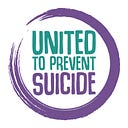Frank’s Story

“Encourage those in emotional torment to reach out and seek help”.
I cannot help my son Alan, however the impact of his death has motivated me to campaign to highlight the importance of making simple small talk with someone who appears to be in distress. A simple “Are you ok?” might save a life. Any one of the two hundred and fifty people who attended Alan’s funeral would have responded to his plea for help, which never came.
June 2015, I was shopping in the supermarket, when I answered a call from the police. They told me that my son Alan had taken his own life.
In that moment, my life changed forever. Over the previous eight months, Alan had withdrawn from his family and friends. He lived in a remote place and did not want to communicate with anyone. He attended a therapist every week.
We had all accepted his wishes. He was a thirty-one-year-old adult, and had suffered from anxiety, low self-esteem and depression for half his life. He had had suicidal thoughts on at least two previous occasions. We assumed it was a “cry for help,” rather than a serious intention.
Alan tried so hard, over many years to understand what was wrong with him and what he could do to become well, to become normal like most people around him. Medication, CBT, Meditation, Tai Chi, Tapping, Yoga, had all come and gone.
He wanted to make his own decisions about everything. He felt parental influence, though well intentioned, did not allow Alan to be Alan. He wanted to be free, to be “himself”.
In earlier years, he had set himself very high standards, concurring with parental expectations and pressure. All parents wish success for their child, however perhaps Alan craved love and happiness above everything else.
In the six years since his death, I have constantly asked myself “Why?”
The answer always comes back that he simply lost “hope”. He was ashamed of what he had become, and was terrified of the future ahead.
In the emotional wreckage, after Alan’s death, I was forced to confront my own options:
Follow Alan.
Take to my bed.
Take to drink to drown my sorrows.
Do something to help others avoid the mistakes.
I was acutely aware that I did not want to be driven or obsessed by what I do, but rather continue to be motivated by my actions.
I live in Lockerbie and joined S.O.B.S Carlisle (Survivors of Bereavement by Suicide). I was communicating with people who “understood” that unique form of grief that we endure and manage. We are members of a club nobody wants to be a member of.
The group has re-formed into SBS Cumbria and South Scotland (Suicide Bereavement Support) and is a never ending source of comfort, understanding and compassion.
Although not a volunteer, I have links with Samaritans. Their telephone listening service is available 24/7 Freephone 116 123.
For some reason, I feel drawn to parents who have lost their child to suicide. Consequently, at a conference on suicide prevention in Manchester, I met Evan Grant who set up a charity in memory of his son Cameron. Much awareness training is linked to many, many schools and colleges throughout the UK.
I collaborate with Philip Mitchell of the Chris Mitchell Foundation who raise funds to provide, amongst other services, Mental Health First Aid Training within professional football.
I read about Steve Mallen who lost his son Ed. Their charity is Zero Suicide Alliance, who offer a free twenty minute training workshop on giving people knowledge and confidence to approach someone in distress and begin by asking “Are You Ok?”. To date over one and a quarter million people have viewed the video.
I have supported SAMH on a bucket collection campaign with Tesco stores and STOMP fundraising at Murrayfield Stadium.
As part of my therapy, I sing and play the ukulele to raise small amounts of money for the above charities.
Very recently, I was overwhelmed with admiration for the three dads who lost their daughters to suicide who set out to raise £30k for Papyrus by walking 300 miles, and to date have raised over £260,000.
In conclusion, I hope those who read my journey, since the death of Alan, are motivated to become involved in issues of suicide prevention and mental health.
Post the Covid-19 pandemic the need is greater than ever.
The following services offer confidential support from trained staff and volunteers. You can talk about anything that is troubling you, no matter how difficult:
- Call 116 123 to talk to Samaritans, or email jo@samaritans.org. Samaritans are there to listen 24 hours a day, 365 days a year, and it’s always free to call from any landline or mobile phone.
- Call 111 to talk to NHS 24’s mental health hub.
- Call 0800 83 85 87 to talk to Breathing Space. The service is open 24 hours at weekends (6pm Friday — 6am Monday) and 6pm to 2am on weekdays (Monday — Thursday). The Breathing Space webchat is an alternative to phoning the service.
- Text “SHOUT” to 85258 to contact the Shout Crisis Text Line, text “YM” if you are under 19.
